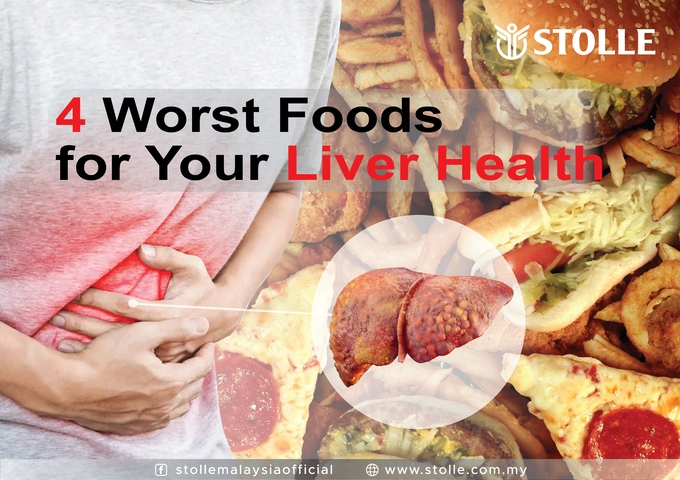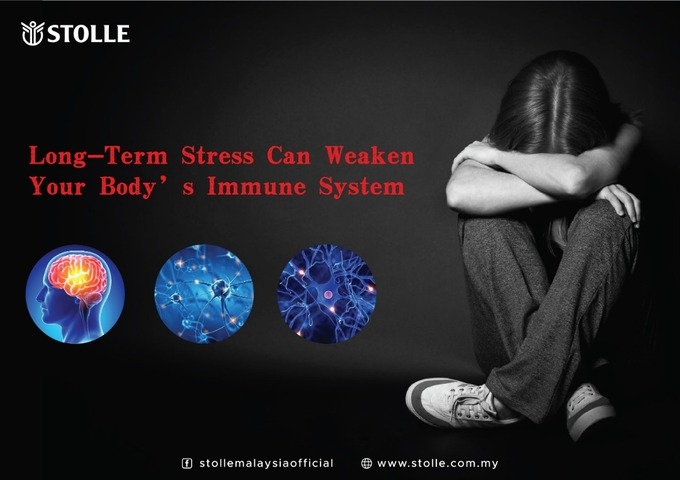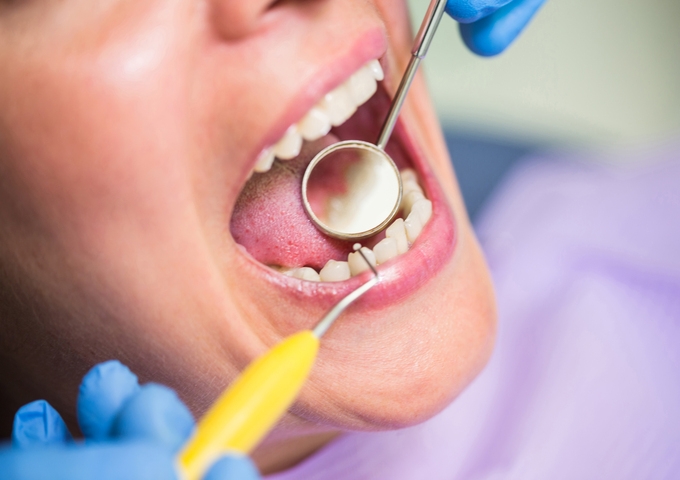The liver is an important organ for human metabolism. It stores glycogen, produces bile, and metabolise fat and it is also the largest detoxification organ in the human body. Binging on high saturated fat and empty-calories food endlessly, especially the worst foods for liver health, makes it harder for your liver to do its job. It may cause damage to liver and cirrhosis. Also, you have an increased risk of liver cancer. 1. Alcohol Most of you might know that alcohol is bad for your liver. The liver breaks down most of the alcohol you drink so that it can be removed from the body. However, this creates a toxic compound that is even more toxic than alcohol. It obstructs the metabolism of the fatty acids by the liver cells, causing internal fat deposition, resulting in fatty liver, particularly for heavy drinkers. It may cause liver inflammation and even irreversible liver disease persistently such as cirrhosis and liver cancer. According to the Centre for Disease Control and Prevention (CDC), adults of the legal drinking age are recommended to drink in moderation by limiting intake to 2 drinks or less in a day for men while 1 drink or less in a day for women. 2. Fried Food High fat and high-calorie food may cause the fat tissues unable to be metabolised in the liver, but it makes them deposited in the liver, resulting in fatty liver and even liver cirrhosis. 3. Processed food Most processed food is added with food additives such as food colouring, flavouring to make them more attractive. Not to mention that preservatives such as nitrite is added to make food last longer. Long-term consumption of these foods can increase the burden on liver metabolism and detoxification, resulting in liver damage. Processed meat such as meat patty, ham, sausages, and smoked meat is high in sodium and nitroso compounds which are prone to cause tumour and cancer. It was classified as carcinogenic to humans by International Agency for Research on Cancer (IARC), whereas red meat as class 2A carcinogen while processed meat as class 1 carcinogen. 4. Sugar Excessive high fructose corn syrup (HFCS) in food or sugar-sweetened beverages not only contributes to obesity but is also prone to fatty liver disease. As excess sugar causes the liver to convert into fat and builds up in the liver. Excessive sugar intake can stimulate oxidative stress and an elevated inflammatory response to the liver. In nutshell, excessive free radicals in the body may cause chronic inflammation of cells, including liver cells. Hence, a proper diet with more fresh fruits and vegetables and spices, particularly less food that damages the liver and drinking more water, all are good practices to keep the liver healthy.
more


Milk is high in nutritional values, it is calcium-rich and packed with high-quality protein. Besides, it is easily digested and absorbed by the human body, hence, it is also known as “Nature’s Perfect Food”. However, fresh milk has a much shorter shelf life, making it highly perishable. Powdered milk is another alternative to milk products that are made from regular milk. Is fresh milk healthier than powdered milk? In fact, powdered milk is nutritionally equivalent to fresh milk. Both powdered milk and fresh milk come from the same ingredient, which is 100% raw milk. The standard processing procedures of milk are the same, including separation, pasteurisation, and so on. After these standard processes, powdered milk is made by evaporating milk to concentrate powdered milk. Lowering the water content and increasing the proportion of solids including protein, fat, and calcium. Therefore, powdered milk has the same nutrition as fresh milk. It provides macronutrients and bone-building minerals such as protein and calcium. Powdered milk also works out to be cheaper than fresh milk. It is a convenient, more shelf-stable alternative to fresh milk. The removal of water in powdered milk inhibits the growth of microorganisms like for instance yeast and mould. It prolongs the shelf life naturally without the use of preservatives. It is ideal for storage at room temperature for up to 2 to 3 years. The Manufacturing Process of Stolle Immune Milk Stolle Immune Milk gives you exclusive and patented bioactive factors and antibodies that are clinically proven to improve your quality of life and balance your body’s immune system. Initially, immune milk was only available as fresh fluid milk which has a short shelf life. The founder, Mr. Stolle soon realised that the best way to extend the shelf life would be to dry it as powder. However, the standard spray drying technology which is using high heat treatment would destroy all the antibodies and bioactive components of immune milk. Hence, Mr. Stolle decided to build and utilise the novel low-heat processing and drying method for operation. Additionally, Mr. Stolle and the team had developed assays to test the antibodies in immune milk including skimmed milk powder (SMP) and milk powder concentrate (MPC) to ensure the milk nutrients and antibodies are well retained.
more
Living and working in a fast-paced world can be difficult. There are often uncontrollable emotional fluctuations such as anxiety, depression, and irritability with the high-pressure contemporary lifestyle. There is a body’s stress response system which will be activated automatically once the stress has been raised either good or bad stress (emotional instability), which will trigger the stress hormone – cortisol. This hormone makes you feel energised, awake, and determined while it provides energy to support you, for example, when you are almost late to an appointment or struggle to finish work upon a deadline. Cortisol only triggers the release of glucose (sugar) from your liver for fast energy during times of stress. Once a perceived threat or stress moment has passed, hormone levels return to normal. You can then adjust your mood accordingly. Conversely, bad stress also will trigger an increase in cortisol such as loss of a loved one, illness, and sudden unemployment. Over time, elevated cortisol will cause more negative effects including suppressing your immune system by reducing the production of white blood cells. While decreasing white blood cells that are responsible for searching for bacteria and fighting viruses makes your response to infection more sluggish and difficult to remove cancerous cells. This is usually why people get sick after a stressful moment. Stressful events are facts of life and cortisol is closely related to stress. And you may take the following steps to manage the impacts these events have on you: Getting regular exercise – You may walk, swim, or play with kids Daily meditation – Allocate some time to regulate stress, and adjust your mood Deep breathing - Deep breathing can lower cortisol levels and help you calm down when you are feeling stressed out Have a good sleep - Cortisol levels rise when you don’t get enough sleep, making you feel more stressed Balanced diet - Have more high protein foods such as milk, eggs, cheese, nuts, etc. Tryptophan is mainly found in protein-rich food which can increase the concentration of serotonin, which helps to improve mood and make you feel good! Stolle ImmNuPro - Contains 80% high-quality protein - The Unique Formulation to Keep You Stay Immune Balanced ► Exclusively formulated to give you optimised support to stabilise your immune system at your best despite a hectic lifestyle ► The world's exclusive Stolle MPC with patented active factors Specific IgG and IgA, lactoferrin, and anti-inflammatory factors that can balance immunity and support the immune system directly ► With additional patented yeast beta-glucan, which is clinically proven to support the immune system to fight colds ► Provide high-quality protein to support the growth and activity of immune cells, improve your gut health and make you feel good! For more information about Stolle ImmNuPro, click HERE.
more
Can you still eat sweet tooth if you have diabetes? Do you have family members or friends who are suffering from diabetes? Once you become diabetic, you must limit your food intake to control blood sugar. You will need to say goodbye to most delicious foods, especially those high in sugar, oil, and calories. Not to mention that sweet tooth! Eating sweet without raising blood sugar! Most of the food’s sweetness comes from sucrose. All those sugars used for cooking, for example, table sugar, brown sugar, and rock sugar, all belong to sucrose. Once the sucrose is being digested, it will be broken down into glucose and fructose, which will be absorbed in the small intestine and thus raise the blood sugar and calories. In fact, diabetes still can enjoy "sweet tooth” with sugar substitutes in moderation if their blood glucose is under control. As the sweetener tastes like sugar but it is not sugar, and the best thing is - it contains almost no calories. Generally, there are two types of sweeteners which are nutritive sweeteners (sugar alcohols) and non-nutritive sweeteners (sugar substitutes). Non-Nutritive Sweeteners (Sugar Substitute) Nutritive Sweeteners (Sugar Alcohol) Stevia Xylitol Saccharin Sorbitol Sucralose Erythritol Sucralose Sucralose is derived from sucrose, and it tastes about 600 times sweeter than sucrose with no calories. Only a small amount to get a very sweet taste. Sucralose does not immediately spike your glucose level as sugar does. Instead, sucralose appears to increase insulin by triggering the sweet receptors in the mouth. Erythritol Erythritol belongs to a sugar alcohol, that is naturally found in fruits and vegetables. It contains about 70% of the sweetness of sucrose. Your body can’t digest them due to their unique chemical structure. They pass unchanged through your digestive system, being absorbed in the small intestines, and most of them are excreted in the urine. Only 10% will be excreted in faeces. Erythritol does not raise blood sugar levels, making it an excellent alternative to sugar for people with diabetes or obesity. In short, although both sugar substitutes and sugar alcohol will not cause a direct impact on blood glucose levels, diabetic patients should closely monitor their overall intake to enjoy the sweetness feast without compromising their health.
more
Hypertension is well established as an important risk factor for cardiovascular disease (CVD). It was previously diagnosed as systolic blood pressure (SBP) ≥ 140 mmHg and/or diastolic blood pressure (DBP) ≥90 mmHg. New guidelines for Blood Pressure Categories However, the definition of hypertension has been tightened in 2017. The latest guidelines from the American Heart Association lowered the numbers for the diagnosis of hypertension (high blood pressure) to 130/80 mm Hg (SBP) or 80 mm Hg (DBP) and higher for all adults. Blood Pressure Category Systolic(mm Hg) Diastolic(mm Hg) Normal Less than 120 And Less than 80 Elevated 120-129 And Less than 80 High Blood Pressure, Hypertension(stage 1) 130-139 Or 80-89 High Blood Pressure, Hypertension(stage 2) 140 or higher Or 90 or higher Hypertensive Crisis (Consult Your Doctor Immediately) Higher than 180 And/or Higher than 120 Source: American Heart Association (AHA) 2017 What are these numbers mean? Systolic blood pressure indicates how much pressure your blood is exerting against your artery walls when the heartbeats. Diastolic blood pressure indicates how much pressure your blood is exerting against your artery walls while the heart is resting between beats. When the heart pumps, it instantly releases a large amount of blood into the arteries, forming a higher pressure, which is called systolic blood pressure. When the blood vessels dilate due to their elasticity, thereby generate pressure to continue to push the blood forward. This pressure is diastolic blood pressure. In most people, systolic blood pressure rises steadily with age due to the increasing stiffness of large arteries, long-term build-up of plaque, and an increased incidence of cardiovascular disease. Unfortunately, most people who have high blood pressure do not have symptoms. Hence, it’s important to get your blood pressure checked during your yearly health screening. Severe hypertension can cause serious health issues, so the sooner you have it diagnosed, the sooner it can be managed, possibly even reversed. In Malaysia, the prevalence of hypertension among adults is as high as 30%, which means every 1 in 3 adults has high blood pressure. Only 50% of them knew that they have high blood pressure, and only one-third of them were treated and had controlled blood pressure. 1,2 These findings were based on the previous cut-off before the new guidelines on high blood pressure were released, which means that in fact, more Malaysian adults are hypertension without knowing! Prevent high blood pressure As the saying goes: “Prevention is better than cure!” To maintain healthy blood pressure, it is necessary to maintain adequate physical activities such as walking, swimming, housework, Tai Chi, and so on. Have a balanced and low-salt diet, quit smoking, limit alcohol consumption, and manage stress well. All of these are essential to help to prevent high blood pressure. Reference: 1Institute for Public Health (IPH), National Institutes of Health, Ministry of Health Malaysia. 2020. National Health and Morbidity Survey (NHMS) 2019: Vol. I: NCDs – Non-Communicable Diseases: Risk Factors and other Health Problems 2Soo MJ, Chow ZY, Ching SM, Tan CH, Lee KW, Devaraj NK, Salim HS, Ramachandran V, Lim PY, Sivaratnam D, Hoo FK, Cheong AT, Chia YC. Prevalence, awareness and control of hypertension in Malaysia from 1980-2018: A systematic review and meta-analysis. World J Meta-Anal 2020; 8(4): 320-344
more
Mom always puts us before herself as she fulfils all our demands without caring about herself. However, when she gets older, she will be more susceptible to chronic health problems, especially after menopause such as osteoporosis, sarcopenia, weak immunity, high blood glucose, high blood pressure, high cholesterol, and cardiovascular disease. One day is never enough to honour our precious mother. Other than giving flowers, gifts and pampering her with a delicious meal during Mother’s Day, the best thing that you can do for your mother is always taking care of her eating habits to ensure she stays healthy all the time. Get enough high-quality protein Protein is one of the essential nutrients for the human body. It can repair and synthesize human tissues and form muscles. It also affects the operation of the body's immune system. As the mother gets older, the muscles and strength will also get weak, and the immune function will be declined. So, make sure mom is getting enough protein to keep her immune system functioning properly and to maintain muscle mass and mobility. There are many choices of protein sources. In addition to chicken, pork, beef, and mutton, if you have bad teeth and poor chewing ability, you can try fish, steamed eggs, tofu, and milk to replenish high-quality protein. Get enough calcium and vitamin D Women generally begin to lose bone density after the age of 35. Especially in women after menopause, ovarian recession, and rapid reduction of oestrogen in the body will cause accelerated bone loss and increase the risk of osteoporosis and bone fractures. The most important thing to maintain bone health and reduce her risk of developing osteoporosis is to ensure that mom is getting enough calcium and vitamin D. Vitamin D helps with calcium absorption and to boost her immunity. In addition to sun exposure, vitamin D can also be obtained from foods such as egg yolks, tuna, mushrooms, etc. Adequate intake of phytoestrogens Phytoestrogen, the natural plant hormone, has a similar structure as oestrogen and can mimic the effects of oestrogen in the body. Several studies have shown that phytoestrogen supplementation can lower cholesterol, improve menopausal symptoms, prevent breast cancer, prevent osteoporosis, and protect heart health. Natural foods rich in plant hormones, such as flax seeds, soybeans, tofu, sesame, and cruciferous vegetables, can be added to the diet in moderation. Stolle Immune Milk Is the BEST Choice to Protect Mother’s Health • More than 60 years of research, more than 20 scientific studies, 200 patents and international recognition • Patented active factors Specific IgG and IgA, lactoferrin and anti-inflammatory factors that can balance immunity and directly support the immune system • The world's exclusive Stolle MPC is added with 1.5 times stronger protection • Several proven health benefits, including patents for regulating immunity, anti-inflammatory, lowering cholesterol, and lowering high blood pressure • Manufactured by New Zealand's largest dairy company with high-quality assurance Stolle Immune Milk has been recognised by multiple patents and clinical trials, making it your first choice for being healthy. A glass of Stolle Immune Milk every day can balance immunity, maintain the health of the digestive tract system, and stabilise cardiovascular parameters.
more
INFLAMMATION is an immune response of the body, a self-protection mechanism against harmful foreign invaders, and helps wounds for healing. However, chronic inflammation can make the body seem to stick around long after infection or injury like an endless war. Other than attacking harmful invaders, it also affects other normal cells. Chronic inflammation may cause adverse inflammation, which leads to irreversible damage to organs. Symptoms such as headaches, back pain, allergies, diabetes, high blood pressure, cardiovascular disease, and even cancer are all associated with chronic inflammation. Therefore, let’s strengthen our body’s immune system through dietary changes by having more anti-inflammatory foods to develop a stable immune system to reduce the risk of infection and chronic inflammation. Eat Right to Get Rid of Inflammation 1) BERRIES Strawberries, blueberries, cherries, and grapes are all high fibre and anthocyanin-rich fruits. In addition to being anti-inflammatory, anthocyanins help to reduce the risk of inflammation and chronic disease, and they also protect the body from free radical damage. 2) DEEP-SEA FISH Humans can’t produce omega-3 unsaturated fatty acids on their own. You should take more fatty fish such as salmon and tuna, which are rich in omega 3, especially EPA, which can produce anti-inflammatory factors and help reduce inflammation. 3) GREEN LEAFY VEGETABLES Cruciferous vegetables such as cauliflower, kale, and cabbage contain sulforaphane, a plant-active substance which also an antioxidant, which prevents free radicals generated by metabolism from harming cells and helps to inhibit inflammation and chronic inflammation. 4) GREEN TEA Instead of helping to burn fat, green tea could help to fight inflammation and delay aging. This is because green tea contains catechins which are high in antioxidants and its EGCG content, which can eliminate free radicals, inhibit inflammatory cytokines, enhance cell repair, and prevent cell damage. 5) TURMERIC Turmeric is known as "the spice of life" in ancient India. Its anti-inflammatory effect is excellent. The molecular structure of curcumin can neutralize the free radicals and prevent cell damage. At the same time, it helps to activate antioxidant enzymes in the body, promotes metabolism, and helps to prevent aging. Every ingredient has its own unique benefits, so you should incorporate a variety of ingredients into your daily eating habits to reduce inflammation, reduce the risk of chronic disease and contribute to overall health.
more
Free radicals are also known as reactive oxygen species and are produced by the metabolism of oxygen in the body. These free radicals generated after metabolism are unstable oxygen, which is more active than oxygen due to the lack of electrons. Free radicals are continuously circulating in the body, ready to attack and grab electrons from other normal cells to stabilize themselves. Under normal circumstances, free radicals in the human body are also used to defend against diseases. When bacteria, moulds, and viruses invade the human body, the body’s immune system will be alerted. For example, phagocytes will be catalysed by related enzymes to generate superoxide free radicals to eliminate bacteria or infected cells. Therefore, free radicals must be kept within a certain range in the body, to avoid excessive damage. However, emerging technology at a rapid pace also affects the surrounding environment, causing more external factors to increase free radicals in the body, such as: Once the free radicals in the body are excessive in large amounts and exceed the range of the body's normal defences, the "radicals chain reaction" occurs. For example, basic substances such as proteins, fats, and DNA are oxidized to become new free radicals, which then oxidize other cells. Such a vicious circle results in the gradual damage and deterioration of various organ functions in the human body. It accelerates aging and causes various diseases, such as: - Nervous system diseases such as memory deterioration, Alzheimer's disease, Parkinson's disease, multiple sclerosis Cardiovascular diseases such as ischemia, hypertension, congestive heart failure, atherosclerosis, cardiomyopathy Diabetes Lung failure Rheumatoid Arthritis Kidney failure Eye diseases - Toxaemia of pregnancy, intrauterine growth retardation, etc. Although there are antioxidant defence mechanisms in the human body, the ability of the body to scavenge free radicals will be weakened with age. Therefore, we should develop good habits in our daily life, and avoid sources of free radicals to combat the harm caused by free radicals. Such as always staying positive mentally and physically and avoiding excessive stress and negative emotions. Eat more foods that are rich in antioxidants including vitamins A, C, E, lycopene, and curcumin to help to remove excess free radicals in the body.
more
Oral cancer and pharyngeal cancer are among the top ten malignant tumours in the world, whereas the tumours often occur at the sites of the head and neck. According to the World Health Organization (WHO), its incidence will continue to rise over the next 70 years. The mouth serves as the starting point for the digestive tract and respiratory tract. Oral cancers are cancers of the upper aerodigestive tract that generally occur in the lips, tongue, nose, throat, vocal cords, and part of the oesophagus and windpipe. Up to 70% of oral cancers are caused by oral lesions, such as persistent red or white patches in the mouth. Are you at high risk of oral cancer? 1. Heavy-drinker and Smokers Cigarettes are the "root cause" of many cancers. Tobacco smoking is responsible for 90% of oral cancers. Alcohol acts as a solvent for carcinogens, facilitating the admission of carcinogens into the oral mucosa. Those who drank 3-4 alcoholic beverages a day had twice the risk of oral cancer compared to non-drinkers. Therefore, reducing tobacco and alcohol intake contribute significantly to the prevention of oral cancer. 2. People Who Often Chew Betel Nut Betel nut fibre is rough, long-term betel nut chewing will cause damage to the oral cavity, resulting in oral mucosal damage, and in severe cases, it will cause oral mucosal fibrosis and cause oral cancer. Although betel nut chewing is a common habit among South-East Asians, only a small minority of Indians, Malays, and Orang Asli chewed betel nut in Malaysia. However, studies have shown that having the habit of chewing betel could increase the risk of oral cancer by six times compared to someone who did not, while those who indulged in all three high-risk habits including smoking, alcohol consumption and betel nut chewing increase their risk of oral cancer by 22 times. 3. People who like spicy and hot food Consuming food or drink at high temperatures, especially above 70°C can easily get injured and cause a thermal burn of the oral mucosa. This is the reason that leads to a high incidence of oral cancer such as tongue cancer. Frequent exposure to high temperatures may impair oral wound healing. Therefore, let your food cool down before eating especially when you’re eating Malatang (spicy hot pot) or hot pot. 4. People with poor oral care Most oral cancer patients have poor oral care such as refusing to brush their teeth, ignoring their regular dental check-ups, and often suffering from poor oral hygiene and other diseases. They frequently suffer from long-term periodontal discomfort, which will lead to continuous inflammation in the oral cavity, resulting in impaired healing at the base of the tongue. This also leads to the occurrence of tongue cancer. In short, tobacco, alcohol and betel nut chewing are the main risks for oral cancer. Reduce your risk by quitting smoke, limiting your alcohol intake and betel nut chewing habit. Take good care of your oral hygiene habits. Visit your dentist for regular screening and talk to your dentist immediately if you found any abnormalities.
more







